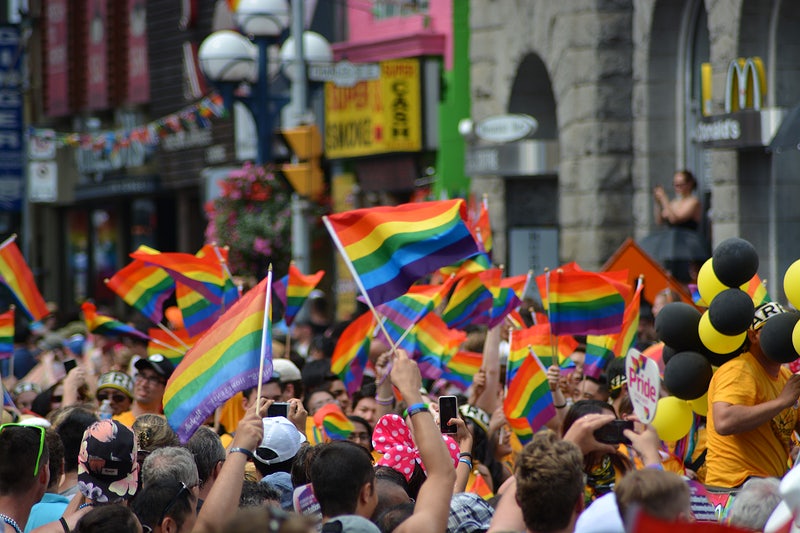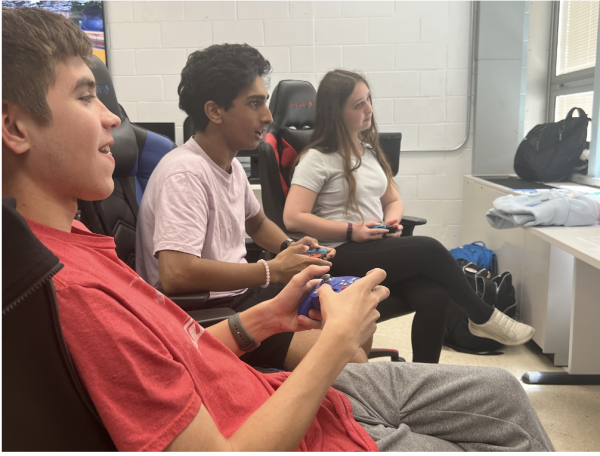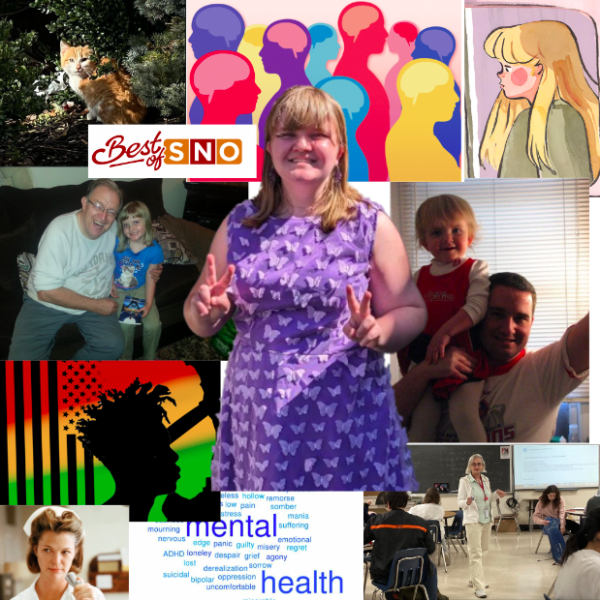A History of the Rights of the Queer Community in America
Many members of the Queer community join for Pride parades every year, celebrating their sexuality and advocating for their rights.
The Queer community has been marginalized throughout American history. While love between those of the same sex has been prevalent in the past, in areas such as the Isle of Lesbos in Ancient Greece, it was not until the early 20th century where the LGBTQ+ community finally began to gain its rights in America. The Stonewall Riots in 1969 were the match that sparked the flame for the ongoing rise of the LGBTQ+ community. Activists such as Sylvia Rivera and Urvashi Vaid delivered speeches encouraging the federal government to enact legislation in favor of the Queer community and spar the opposition. The Queer community is still ostracized today, with acts of violence and hate speech being woefully common. Striving to include the opposition in this change has not been effective because many are not willing to move forward. They prefer to stay in the past, with fundamentalist ideals, even while the modern world is progressing beyond their narrow scope. Nonetheless, when joined by its supporters and the federal government, the LGBTQ+ community has been able to earn rights in America.
At the Christopher Street Day Liberation Rally in 1973, Sylvia Rivera delivered an influential speech entitled “Y’all Better Quiet Down”. Rivera was friends with famous queer advocate Marsha P. Johnson, joining her in the Stonewall Riots. Johnson and Rivera also founded the Street Transvestite Action Revolution organization to aid the homeless queer community. In her speech, Rivera effectively uses rhetorical questions to bring the plight of the Queer community to light. “Have you ever been beaten up and raped in jail?” “I have lost my apartment for gay liberation and you all treat me this way?”(Rivera). Rivera brought the suffering of the queer community to the public, educating the audience about their suffering from arrest, suicide, and rape. This was the Nixon era, where the corruption of society and the government was revealed to the public. There was no “liberty and justice for all”, and Rivera was ready to call out the government inaction towards this group.
Urvashi Vaid was a later LGBTQ+ activist. Her 1995 novel, “Virtual Equality: The Mainstreaming of Gay and Lesbian Liberation”, discussed the continuing discrimination towards the Queer community and pushed for social change. Her speech at the March on Washington in 1993 further addresses this. “We have come to challenge the cowardly Congress to end its paralysis and exercise moral leadership”(Vaid). Vaid talked of the political Right’s intense focus on Christianity; more focused on the values of the Old Testament than the values of true acceptance. She called for a new world, void of discrimination, bigotry, and violence. Her use of anaphora, repeating phrases like “We have come” and “They are wrong” to further push her call to action. She wants the audience to join her in the fight for Queer rights.
In 2015, the Supreme Court Case Obergefell v Hodges legalized gay marriage under the Due Process Clause and the Equal Protection Clause of the 14th Amendment. After this monumental decision, President Barack Obama delivered at the White House. “Today, we can say in no uncertain terms that we’ve made our union a little more perfect”(Obama). Obama is thrilled in his dialect, using an allusion to his “A More Perfect Union” speech during his 2008 campaign. He also used anaphora, repeating the phrase “it’s a victory for” to spotlight just how monumental the decision was. Obama also acknowledged that there would be differences in opinion, encouraging citizens to be mindful of this fact and accept others for their beliefs. The Obergefell v Hodges case brought the Queer community into a new era—finally recognized by the federal government and gaining their rights. Citizens of America were more free to express their sexuality and gender identity. So much progress has been made since 1969, yet is it enough?
Unfortunately, there are still facets of America who shun and discard the Queer community. In 2021, Bryce Dersham, a high school graduate, delivered his valedictory speech. This oration was covered all over the news, but for an unfortunate reason—his microphone was cut off mid-speech. Dersham was a queer teen, and his speech covered his authentic experience at the school. He talked about his struggles with mental health, anorexia, and his queer identity. His speech made it clear that his legacy would NEVER be halted. “Believe in what we have to look forward to in the future. Believe one another. Believe in the reality of mental illness. Believe regardless of stereotypes and stigma”(Dersham). Despite all of the opposition Dersham faced throughout his high school career, he delivered a speech that inspired hope. A better world, filled with people who are much more empathetic. A world free from the misinformation of Alex Jones and his rants about chemicals in the water turning the frogs gay; free from Tucker Carlson and his segments bashing nonbinary M&Ms. A world free from corporations being bashed for having a transgender spokesperson. Despite all of the opposition, there is still hope for change. Dersham’s speech is inspirational, bringing hope and positivity when there is so much pessimism and hatred. Supporters of the Queer community are numerous, and, when together, can accomplish great things.
The LGBTQ+ community is still struggling against discrimination. Enormous strides have been made since Stonewall. Activists and orators such as Rivera and Vaid delivered speeches and paved the way for Obergefell v Hodges to legalize gay marriage. New political leaders, such as Obama, preach acceptance toward the Queer community. Opposition and homophobia are still common, but there is a light on the horizon. As Dersham once said, “Each and every one of you is enough. Each and every one of you can and will change this world”. Although striving to include the opposition has arguably caused more harm than good, the new generation has and will continue to make incredible progress towards the rights of the LGBTQ+ community.







